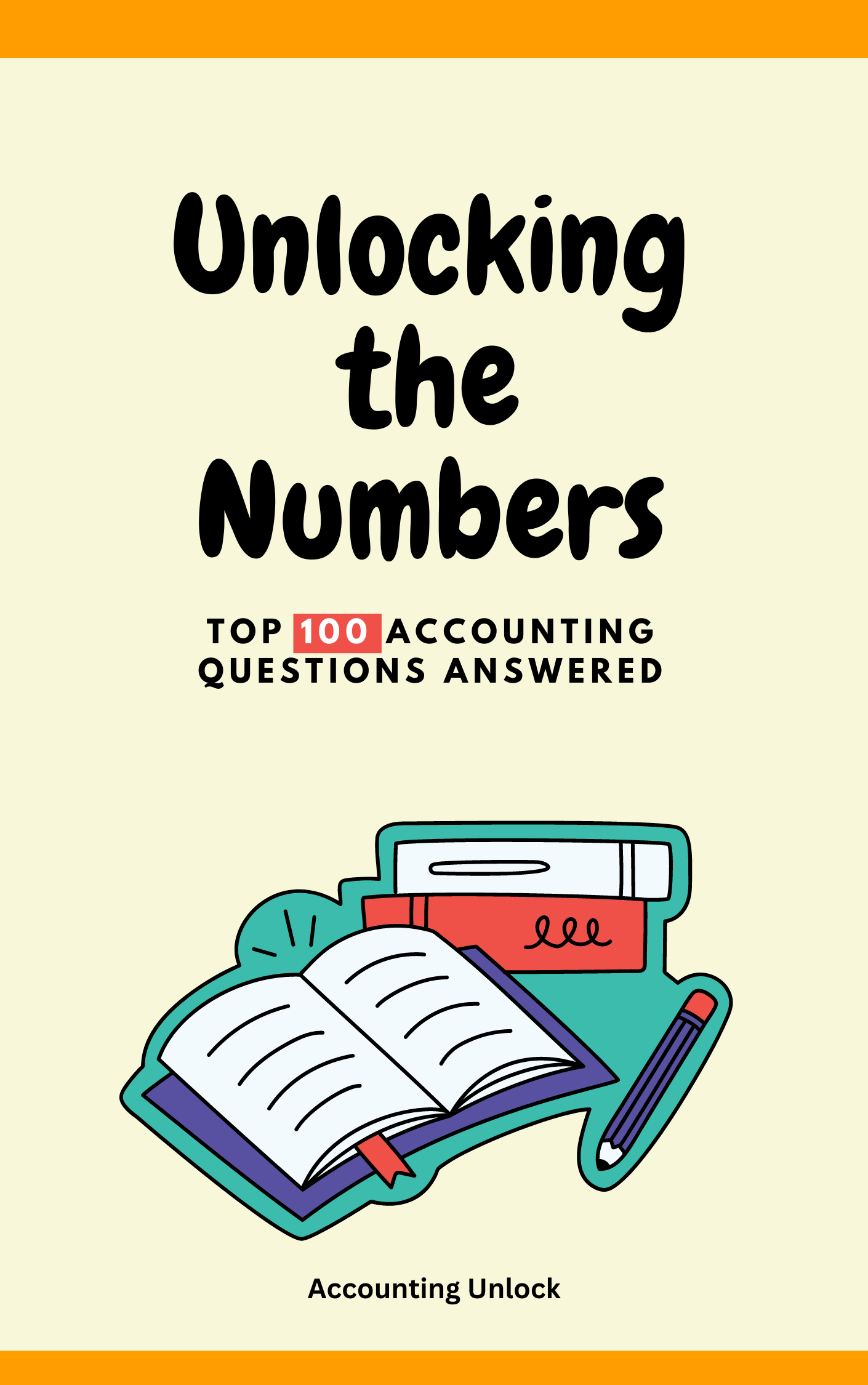Decoding Dollars: Why Accounting is the Coolest Language of Business
Hey there, young financial explorers! Ever wondered why businesses seem to speak a different language when it comes to money? Well, get ready for a thrilling adventure into the world of accounting – the coolest language of business!
Picture this: Imagine you have a secret code to understand how businesses communicate, make decisions, and thrive. That code is accounting, and it’s like the magical language that unlocks the mysteries of the financial world. In this journey, we’ll demystify why accounting is often called the language of business, and by the end, you’ll see dollars and cents in a whole new light.
So, buckle up your financial curiosity, grab your explorer’s hat, and let’s dive into the captivating universe of accounting. By the end of this adventure, you’ll not only know why accounting is crucial for businesses but also discover how you can use this financial language in your own life.
Ready? Let’s embark on the journey of “Decoding Dollars: Why Accounting is the Coolest Language of Business!”
Table of Contents
The Basics: What is Accounting and How Did it Become the Language of Business?
Numbers with a Purpose:
Okay, let’s start with the basics. What exactly is accounting? Imagine it as the storyteller of a business. It’s the language that businesses use to express their financial tale – the money they earn, the expenses they incur, and the overall financial performance.
But why is it so important? Because without this language, understanding how a business is doing financially would be like trying to read a book in a foreign language. Accounting gives businesses a way to communicate their financial story to everyone interested, from investors to curious minds like yours.
A Brief History of Accounting:
Now, let’s travel back in time a bit. How did accounting come to be the language of business? It turns out, as soon as people started trading goods and services, they needed a way to keep track of what they were exchanging. That’s where accounting stepped in.
From ancient civilizations to the bustling markets of today, businesses needed a system to record their transactions and understand their financial picture. So, accounting evolved over time, becoming the reliable language that helps businesses communicate and thrive.
Now that we’ve laid the groundwork, let’s dig deeper into how accounting speaks volumes in the financial world. Get ready for some financial magic!
How Accounting Speaks Volumes: The Key Components
Dollars and Sense:
Alright, let’s dive into the nitty-gritty of how accounting speaks volumes. At its core, accounting deals with money – dollars and cents. It’s like the master translator that helps businesses make sense of their financial transactions.
Whether it’s recording sales, tracking expenses, or keeping an eye on profits, accounting ensures that every financial move is accounted for. So, when you hear about businesses making money, facing losses, or turning a profit, it’s all thanks to the language of accounting making sense of those dollars.
Keeping Score: The Art of Record-Keeping:
Now, imagine you’re playing your favorite video game. What do you need to keep track of to know how well you’re doing? Your score, right? Well, in the world of business, accounting keeps score too.
It’s all about meticulous record-keeping. Every transaction, every purchase, every sale – it all gets recorded. This helps businesses keep a scorecard of their financial performance. And just like a game, where a high score is celebrated, businesses use accounting to celebrate their financial wins and learn from their challenges.
So, in a nutshell, accounting is the superhero that makes sure businesses understand the language of money, keeping score and helping them navigate the financial playing field. Now, let’s move on to the grammar of accounting and understand the rules that make this language tick. Exciting, isn’t it? Let’s keep decoding the language of business!
The Grammar of Accounting: Principles and Rules
GAAP – The Accounting Alphabet:
Now that we’ve got the basics down, let’s talk about the rules that make accounting a structured language. Ever heard of GAAP? No, it’s not a secret code; it stands for Generally Accepted Accounting Principles.
Think of it as the alphabet of accounting – a set of rules and standards that businesses follow to ensure their financial information is clear, consistent, and understandable. Just like everyone using the same alphabet to communicate, businesses use GAAP to speak the same financial language. This helps in comparing and understanding financial information across different companies.
Double-Entry Bookkeeping:
Balancing the Books: Here’s where it gets a bit more interesting – the concept of double-entry bookkeeping. Imagine you have a magical scale. Every time you add something on one side, you need to add something of equal weight on the other side to keep the scale balanced. In accounting, it’s somewhat similar. Every financial transaction affects at least two accounts, and the total value on one side must always equal the total value on the other side.
It’s like ensuring the books are always in balance. For example, if a business buys something, it affects both the cash account and the inventory account. This way, the financial scale remains perfectly balanced. It might sound a bit tricky, but it’s this double-entry system that keeps the financial language accurate and reliable.
So, think of GAAP and double-entry bookkeeping as the grammar and structure of the accounting language, making sure that every financial story told follows the same rules. Now, let’s move on to how accountants use this language to tell stories – the financial statements. Ready for some financial storytelling? Let’s go!
How Accountants Tell Stories: Financial Statements
The Balance Sheet: A Snapshot of Finances:
Alright, imagine you’re taking a snapshot of everything a business owns and owes at a specific moment – that’s what a balance sheet does. It’s like a financial selfie, capturing the assets (what a business owns) and liabilities (what a business owes) at a particular point in time.
The cool part? The balance sheet follows the accounting equation: Assets = Liabilities + Equity. It’s like a perfectly balanced seesaw, showing how a business’s resources are funded.
Income Statement: The Story of Profits and Losses:
Now, let’s talk about the income statement – the storyteller of a business’s financial performance over a period. It’s like reading the exciting chapters of a book. The income statement tells you how much money a business made (revenue), how much it spent (expenses), and whether it ended up with a profit or a loss. It’s the dynamic part of the financial story, revealing the ups and downs of a business’s financial journey.
So, when accountants prepare these financial statements, they’re essentially narrating the financial story of a business. These statements become the language through which businesses communicate their successes, challenges, and overall financial health to everyone interested – from investors to curious minds like yours.
Now that we’ve decoded the basics of financial storytelling, it’s time to wrap up our journey into the language of business.
Ready for the grand finale? Let’s discover why understanding accounting is like learning the language of financial wizards. Join me for the conclusion of our financial adventure!
Conclusion: Decoding Dollars and Becoming a Financial Wizard
Phew, what an adventure! We’ve traveled through the financial landscape, decoding the language of business – accounting. From understanding why it’s crucial to exploring its history, components, and grammar, you’ve now got the tools to decipher financial mysteries like a true financial wizard.
So, why is accounting considered the language of business? It’s because it allows businesses to communicate their financial stories clearly and consistently. Whether it’s through recording transactions, following GAAP, or preparing financial statements, accounting is the magical language that turns numbers into meaningful narratives.
As you wrap up this journey, remember that understanding accounting isn’t just for financial professionals; it’s a superpower anyone can wield. From managing your allowance to making informed decisions in the future, you’ve now got the keys to the financial kingdom.
Feel the excitement of being a financial wizard, equipped with the knowledge of the language that powers businesses worldwide. Keep exploring, stay curious, and who knows, you might just uncover the next big financial secret!
Thank you for joining me on this adventure into the world of “Decoding Dollars: Why Accounting is the Coolest Language of Business.” Until our next financial exploration, happy decoding! 🌟
Key Points – “Decoding Dollars: Why is Accounting the Language of Business?”
- Introduction:
- Accounting is the language businesses use to communicate their financial stories.
- It’s like a secret code that unlocks the mysteries of the financial world.
- The Basics: What is Accounting and How Did it Become the Language of Business?
- Accounting is the storyteller of a business’s financial tale.
- Developed as a system to record transactions, accounting evolved into the language of business.
- How Accounting Speaks Volumes: The Key Components:
- Accounting deals with dollars and cents, making sense of financial transactions.
- It keeps score through meticulous record-keeping, helping businesses understand their financial performance.
- The Grammar of Accounting: Principles and Rules:
- GAAP (Generally Accepted Accounting Principles) acts as the alphabet of accounting, ensuring a consistent financial language.
- Double-entry bookkeeping is the concept of balancing financial transactions, maintaining accuracy.
- How Accountants Tell Stories: Financial Statements:
- The balance sheet captures a snapshot of a business’s assets, liabilities, and equity at a specific moment.
- The income statement tells the story of a business’s financial performance over a period, revealing profits and losses.
- Conclusion: Decoding Dollars and Becoming a Financial Wizard:
- Understanding accounting empowers individuals to navigate the financial world like a wizard.
- Accounting is not just for professionals; it’s a superpower for managing personal finances and making informed decisions.
- Final Message:
- Accounting is the coolest language of business, turning numbers into meaningful narratives.
- Stay curious, explore the financial world, and embrace the excitement of being a financial wizard.
Embark on your financial journey armed with the language of business – accounting! 🚀💰
FAQs – “Decoding Dollars: Why is Accounting the Language of Business?”
Q1: Why is accounting considered the language of business?
A1: Accounting is considered the language of business because it provides a standardized way for businesses to communicate their financial stories. It involves recording transactions, following principles like GAAP, and preparing financial statements, ensuring clear and consistent communication.
Q2: Can I use accounting in my personal life?
A2: Absolutely! Understanding accounting basics can help you manage your personal finances. From budgeting to setting savings goals, the principles of accounting are applicable to your financial decisions.
Q3: What is GAAP, and why is it important in accounting?
A3: GAAP stands for Generally Accepted Accounting Principles. It’s a set of rules and standards that ensure consistency in financial reporting. Following GAAP is crucial for businesses to communicate financial information clearly and transparently.
Q4: How does double-entry bookkeeping work?
A4: Double-entry bookkeeping means that every financial transaction affects at least two accounts, ensuring the books remain in balance. For example, if a business buys something, it impacts both the cash and inventory accounts.
Q5: Why do businesses need financial statements like the balance sheet and income statement?
A5: Financial statements provide a comprehensive view of a business’s financial health. The balance sheet captures a snapshot of assets, liabilities, and equity at a specific moment, while the income statement tells the story of profits and losses over a period, aiding in decision-making and transparency.
Q6: Is accounting only for professionals?
A6: No! Accounting is a valuable skill for everyone. While professionals use it in business, individuals can apply basic accounting principles to manage personal finances, make informed decisions, and plan for the future.
Q7: How can I learn more about accounting?
A7: Explore online resources, take introductory courses, and read beginner-friendly books on accounting. Start with the basics, and gradually delve into more advanced concepts. Remember, curiosity is the key to mastering the language of business!
Ready to unlock the secrets of accounting? Keep those questions coming, and let’s continue decoding the fascinating world of finance! 💡💼
You may also read:





